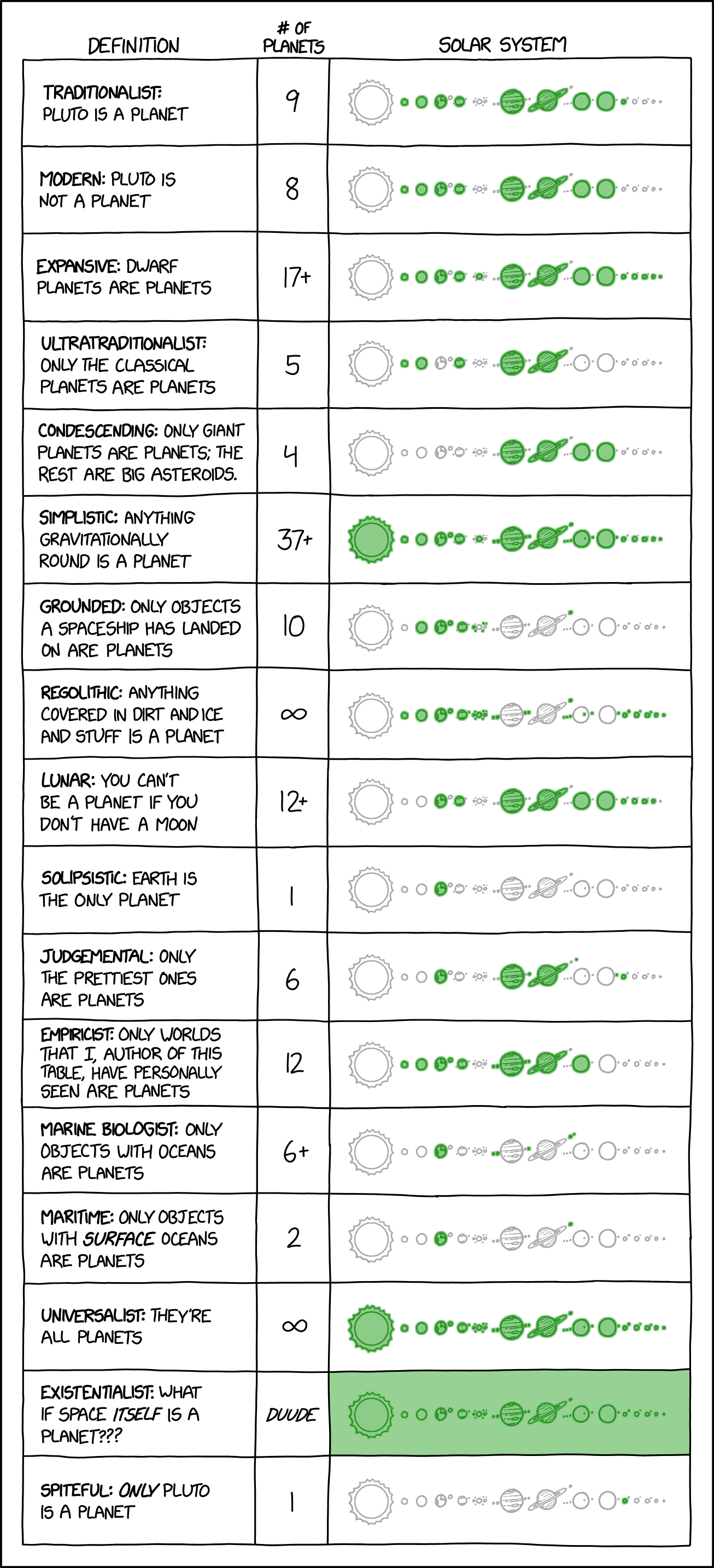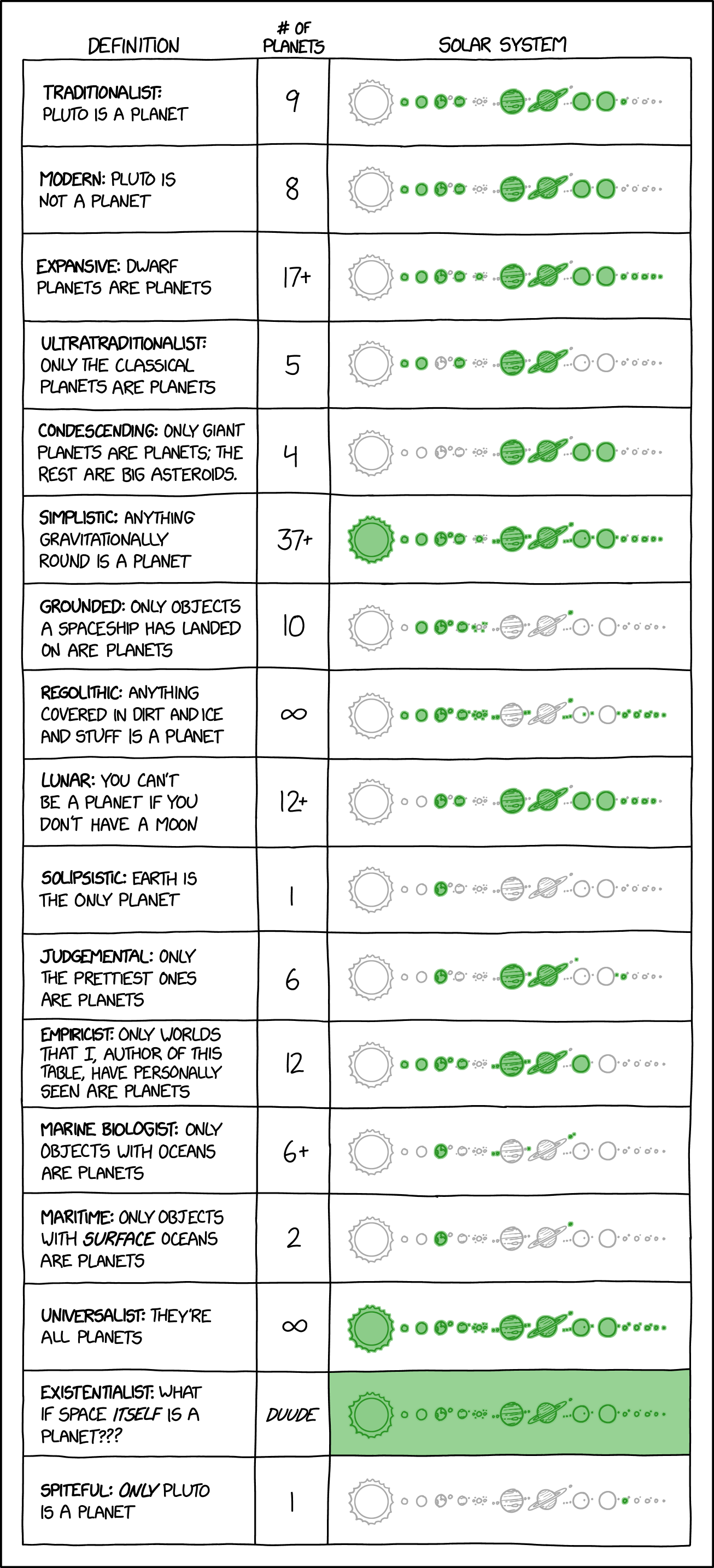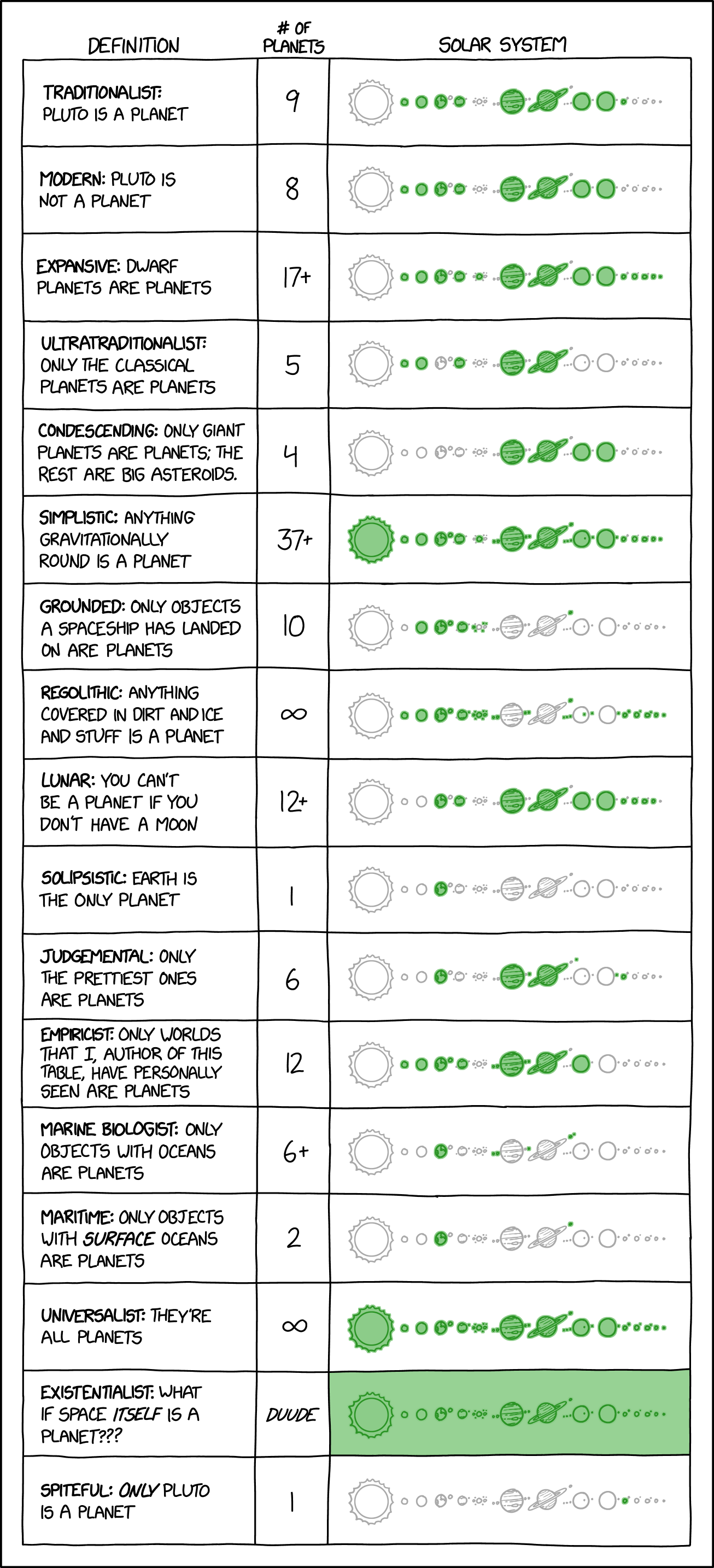xkcd #3063: Planet Definitions
xkcd #3063: Planet Definitions

xkcd.com
Planet Definitions

Under the 'has cleared its orbital neighborhood' and 'fuses hydrogen into helium' definitions, thanks to human activities Earth technically no longer qualifies as a planet but DOES count as a star.
